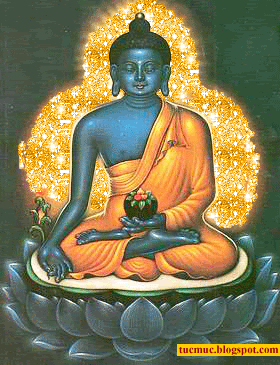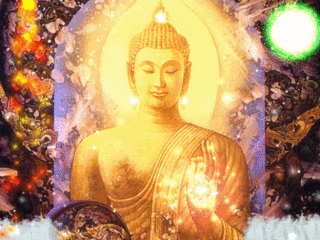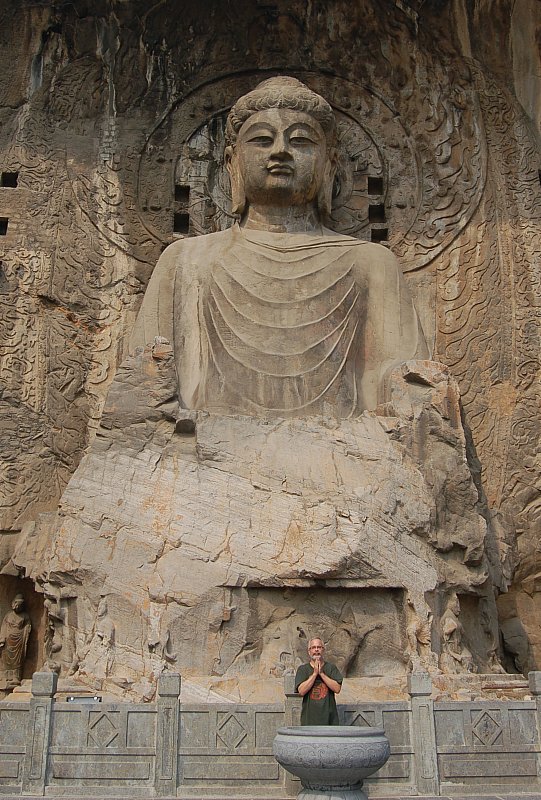MAY YOU LIVE LONG !
MAY ALL SENTIENT AND NON-SENTIENT BEINGS BE EVER HAPPY !
MAY YOU EVER HAVE CALM, QUIET, ALERT,ATTENTIVE AND
EQUANIMITY MIND WITH A CLEAR UNDERSTANDING THAT
EVERYTHING IS CHANGING !
After APOLLO 12 , if it was APOLLO 12A
Then after 01-01-2012 will it be 01-01-2012A ?



010113 TUESDAY LESSON 797
மற்றும்
பன்னிரண்டாகவுள்ள மண்டலங்கள்
சுருக்கமான வரலாற்று முன் வரலாறு
ஸுத்தபிடக
புத்தசமய நெறி முறைகளின் பன்னிரண்டாகவுள்ள மண்டலங்கள்
புத்தசமய நெறி முறைகளின் ஒன்பது மண்டலங்கள்
TIPITAKA-ஸுத்தபிடக-போதிசத்தா மேன்மை பொருந்திய நேர்த்தி வாய்ந்த மனிதர் ஸுத்த நீதி வாக்கியம்-
Majjhima மத்திம Nikāya நடுத்தரமான நீள அளவு திரட்டுகள்-எல்லா களங்கங்களின் நெறி முறைக் கட்டளை ஆணை-Sabbāsava Sutta
Practice UNIVERSITY through http://sarvajan.ambedkar.org
Majjhima மத்திம Nikāya நடுத்தரமான நீள அளவு திரட்டுகள்
[ majjhima: medium ]
மத்திம (நடுத்தரமான) நிகாய (திரட்டுகள்)
புத்தரால்
கொடுக்கப்பட்ட 152 மத்திம ( நடுத்தரமான நீட்சி ) பல்வேறு வகைப்பட்ட
விஷயங்கள் செயல் தொடர்பு உடன் போதனையுரைகள் கொய்சகமாக்கப்பட்டது.
Majjhima
மத்திம Nikāya நடுத்தரமான நீள அளவு திரட்டுகள் புத்தரின் பல்வேறு
வகைப்பட்ட விஷயங்களின் செயல் தொடர்பு உடன் 152 கொய்சகமாக்கப்பட்ட மத்திமநீள
அளவு திரட்டுகள்
>> Tipiṭaka >> Sutta Piṭaka >>
Majjhima Nikāya-மூன்று கூடைகள்— The words of the Buddha புத்தரின்
வார்த்தைகள்—Majjhima மத்திம Nikāya நடுத்தரமான நீள அளவு திரட்டுகள்
MN 2 - (M i 6)
Sabbāsava Sutta
எல்லா களங்கங்களின் நெறி முறைக் கட்டளை ஆணை
புத்தர்
இங்கு மனதை நுரைத்தெழச்செய்து கறைப்படுத்தும் asavas புலனுணர்வை ஆட்கொண்ட
மற்றும் மட்டுமீறிய சிற்றின்ப ஈடுபாடு, வாழ்க்கை பசி வேட்கை, கனவுகள்
நிறைந்த ஊகக் கோட்டை மற்றும் அறிவின்மை போன்ற இகழத்தக்க செய்திகளை விரட்ட
வேறுபட்ட வழிவகைகள் எவை என வெளிப்படுத்தல். இந்த நுலிலிருந்து எடுத்த பகுதி
ஒரு சொற்பொருள் விளக்கம் யாவையும் உட்கொண்டு
பாண்டியத்தியமுள்ள,மெய்யாக,வினாவுள்ள,தகுதியாக, கருதுதல்.
மிக
சுவாரசியமான நெறி முறைக் கட்டளை ஆணை.இங்கு மனதை நுரைத்தெழச்செய்து
கறைப்படுத்தும் asavas புலனுணர்வை ஆட்கொண்ட மற்றும் மட்டுமீறிய சிற்றின்ப
ஈடுபாடு, வாழ்க்கை பசி வேட்கை, கனவுகள் நிறைந்த ஊகக் கோட்டை மற்றும்
அறிவின்மை போன்ற இகழத்தக்க செய்திகளை விரட்ட வேறுபட்ட வழிவகைகள் எவை என
வெளிப்படுத்தல். இந்த நுலிலிருந்து எடுத்த பகுதி ஒரு சொற்பொருள் விளக்கம்
யாவையும் உட்கொண்டு பாண்டியத்தியமுள்ள, மெய்யாக, வினாவுள்ள, தகுதியாக,
கருதுதல்.
நான் இந்த நெறி முறைக் கட்டளை ஆணையை கேட்டேன்:
ஒரு
சமயத்தில் பகவா, சாவத்தி விறாரம், ஜேதவம், அனாதபின்டிகாவின் துறவிமடத்தில்
தங்கியிருந்தார். அங்கே அவர் பிக்குகளுக்கு பேருரையாற்றினார்.
பிக்குகபிக்குகளே
- ஆமாம், பதந்தே, பிக்குகபிக்குகள் பிரதிபலித்தனர்.
பகவா சொற்றார்:
நான்
உங்களுக்கு எல்லா நொதித்தல்களையும் கட்டுப்படுத்தும் ஒழுங்குபட்ட
வழக்கங்களை கற்றுக்கொடுக்கிறேன்,பிக்குகபிக்குகளே, கவனமாக உன்னித்து
கேள்ளுங்கள்.நான் பேசுவேன்.
- உங்கள் கூற்றுபடியே, பந்தே, என பிக்குகபிக்குகள் பிரதிபலித்தனர்.பகவா சொற்றார்:
- நான் உங்களுக்கு கூறுவேன்,
பிக்குகபிக்குகளே, எவர் ஒருவர் அறிந்தும் மற்றும் ஞாதுகிறாரோ நொதித்தல்கள்
முடிவுறும், அறியாத மற்றும் ஞாதுகிறாதவருக்கல்ல. எவற்றை அறிந்து மற்றும்
ஞாதுகிறது? பொருத்தமான கவனம் மற்றும் பொருத்தமற்ற கவனம். ஒரு பிக்கு
பொருத்தமற்ற கவனம் செலுத்தினால் எழும்பாத நொதித்தல்கள் எழும், மற்றும்
எழும்பிய நொதித்தல்கள் அதிகமாகும். ஒரு பிக்கு பொருத்தமான கவனம்
செலுத்தினால் எழும்பாத நொதித்தல்கள் எழும்பாது, மற்றும் எழும்பிய
நொதித்தல்கள் கைவிடப்படுகிறது.
பிக்குகளே, நொதித்தல்களை பார்வையால்
கைவிடப்படவேண்டி இருக்கிறது, சிலதை அடக்கி வைத்து கைவிடப்படவேண்டி
இருக்கிறது, சிலதை கையாளுதலால் கைவிடப்படவேண்டி இருக்கிறது, சிலதை
பொறுத்துக்கொண்டு கைவிடப்படவேண்டி இருக்கிறது, சிலதை அழிப்பால்
கைவிடப்படவேண்டி இருக்கிறது, மற்றும் சிலதை வளர்ச்சியால் கைவிடப்படவேண்டி
இருக்கிறது.
பார்வையால் கைவிடப்படவேண்டிய நொதித்தல்கள்
மற்றும் எந்த நொதித்தல்களை பார்வையால் கைவிடப்படவேண்டி
இருக்கிறது?இது ஓர் அறிவுறுத்தப்படாத நபரின் நேர்வு - மேதக்கவர்களுக்கு
அபிமானம் இல்லாதவர், நேர்மையான மனிதர்ளிடத்து அபிமானம் இல்லாதவர், எந்த
எண்ணத்தையும் நுணுகிக் காண கவனம் செலுத்த அருகதை இருப்பது அல்லது எந்த
எண்ணத்தையும் நுணுகிக் காண கவனம் செலுத்த அருகதை இல்லாதது என அவர்களின்
தம்மாவை நன்குணராத அல்லது கட்டுப்பாடாடற்றவர். இது அப்படி இருத்தல், அவர்
எந்த எண்ணத்தையும் நுணுகிக் காண கவனம் செலுத்த அருகதை இருப்பதை
கவனிப்பதில்லை, மற்றும் எந்த எண்ணத்தையும் நுணுகிக் காண கவனம் செலுத்த
அருகதை இல்லாததில் கவனம் செலுத்துகிறார்.
மற்றும் எந்த, பிக்குகபிக்குகளே, தம்மங்களை மானஸிகாரண்யமற்ற (தகுதியற்ற கவனம்), அவர் அத்தம்மங்களை மானஸிக்கிறார் (கவனம்) செய்கிறார்?
ஏதாகிலும், பிக்குகபிக்குகளே, எத்தம்மங்களை மானஸிக்கிறாரோ (கவனம்) செய்கிறாரோ.
Pāḷi
ஏவங் மே சுத்தங்: ஏவங் சமயங் பகவா
சாவத்தியங் விறாரத்தி ஜேதவனே அனாதபின்டிகஸ்ஸா ஆராமே. தத்ரா கோ பகவா பிக்கு (சீவகர்) ஆமன்தேசி
Evaṃ me sutaṃ: ekaṃ samayaṃ bhagavā sāvatthiyaṃ viharati jetavane anāthapiṇḍikassa ārāme. Tatra kho bhagavā bhikkhū āmantesi:
பிக்குகாவோ’தி
– ‘bhikkhavo’ti.
- பதந்தே’தி தே பிக்கு பகவதோ
பச்சாஸோஸும். பகவா எடதாவோசா:
– ‘Bhadante’ti te bhikkhū bhagavato paccassosuṃ. Bhagavā etadavoca:
- ஸப்பாஸவஸங்வரப்பரியாயங் வோ,
பிக்குகாவே, தெஸஸ்ஸாமி. தங் ஸுனாத,
ஸாதுதங் மனஸி கரோத, பாஸிஸ்ஸாமி’தி
– ‘Sabbāsavasaṃvarapariyāyaṃ vo, bhikkhave, desessāmi. Taṃ suṇātha, sādhukaṃ manasi karotha, bhāsissāmī’ti.
-ஏவங், பந்தே’தி கோ தே பிக்கு பகவதோ
பச்சாஸோஸும். பகவா எடதாவோசா:
– ‘Evaṃ, bhante’ti kho te bhikkhū bhagavato paccassosuṃ. Bhagavā etadavoca:
- ஜானதோ அகம், பிக்காவே,
பஸ்ஸதோ, ஆஸவானங் காயங் வதாமி, நோ அபஸதோ.கின்சா பிக்காவே, ஜானதோ கின்சா
பஸ்ஸதோ ஆஸவானங் காயங் வதாமி? யோனிஸோ சா மானஸிகாரங் அயோனிஸோ சா மானஸிகாரங்.
அயோனிஸோ, பிக்காவே, மானஸிகரோதோ அனுப்பன்னா சேவ ஆஸவா உப்பஜ்ஜன்தி, உப்பன்னா
சா ஆஸவா பவத்தந்தி; யோனிஸோ சா கோ, பிக்காவே, மானஸிகரோதோ அனுப்பன்னா சேவ
ஆஸவா நா உப்பஜ்ஜன்தி, உப்பன்னா சா ஆஸவா பாகியந்தி.
–
Jānato ahaṃ, bhikkhave, passato āsavānaṃ khayaṃ vadāmi, no ajānato no
apassato. Kiñca, bhikkhave, jānato kiñca passato āsavānaṃ khayaṃ vadāmi?
Yoniso ca manasikāraṃ ayoniso ca manasikāraṃ. Ayoniso, bhikkhave,
manasikaroto anuppannā ceva āsavā uppajjanti, uppannā ca āsavā
pavaḍḍhanti; yoniso ca kho, bhikkhave, manasikaroto anuppannā ceva āsavā
na uppajjanti, uppannā ca āsavā pahīyanti.
அத்தி, பிக்காவே, ஆஸவா தஸ்ஸனா பஹாதப்பா,
அத்தி ஆஸவா ஸம்வரா பஹாதப்பா, அத்தி ஆஸவா பட்டிஸேவனா பஹாதப்பா, அத்தி ஆஸவா
அதிவாஸனா பஹாதப்பா, அத்தி ஆஸவா பரிவஜ்ஜனா பஹாதப்பா, அத்தி ஆஸவா வினோதனா
பஹாதப்பா, அத்தி ஆஸவா பாவனா பஹாதப்பா.
Atthi,
bhikkhave, āsavā dassanā pahātabbā, atthi āsavā saṃvarā pahātabbā, atthi
āsavā paṭisevanā pahātabbā, atthi āsavā adhivāsanā pahātabbā, atthi
āsavā parivajjanā pahātabbā, atthi āsavā vinodanā pahātabbā, atthi āsavā
bhāvanā pahātabbā.
தஸ்ஸனா பஹாதப்பாஸவா
(Dassanā pahātabbāsavā)
கதமே சா பிக்காவே, ஆஸவா தஸ்ஸனா பஹாதப்பா? இத பிக்காவே,
அஸுத்தவா புதுஜ்ஜனோ - அரியானம் அதஸ்ஸாவி ஆரியதம்மஸ்ஸா அகோவிதோ ஆரியதம்மே
அவினிதோ, ஸப்புரிஸானம் அதஸ்ஸாவி ஸப்புரிஸதம்மஸ்ஸா அகோவிதோ ஸப்புரிஸதம்மே
அவினிதோ- மானஸிக்காரண்யே தம்மே நப்பஜானதி, அமானிஸிக்காரண்யே தம்மே
அப்பஜானதோ, ஏ தம்மா நா மானஸிக்காரண்யா, தே தம்மே மானஸி கரோதி, ஏ தம்மா
மானஸிக்காரண்யா தே தம்மே மானஸி கரோதி.Katame
ca, bhikkhave, āsavā dassanā pahātabbā? Idha, bhikkhave, assutavā
puthujjano – ariyānaṃ adassāvī ariyadhammassa akovido ariyadhamme
avinīto, sappurisānaṃ adassāvī sappurisadhammassa akovido
sappurisadhamme avinīto – manasikaraṇīye dhamme nappajānāti,
amanasikaraṇīye dhamme nappajānāti. So manasikaraṇīye dhamme appajānanto
amanasikaraṇīye dhamme appajānanto, ye dhammā na manasikaraṇīyā, te
dhamme manasi karoti, ye dhammā manasikaraṇīyā te dhamme na manasi
karoti.
கதமே
சா பிக்காவே தம்மா நா மானஸிகாரண்யா யே தம்மே மானஸி கரோதி ? யஸ்ஸா,
பிக்காவே, தம்மே மனானஸிகரோதோ அனுப்பன்னோ வா காமஸவோ உப்பஜ்ஜாதி, உபன்னோ வா
காமஸவோ பவத்ததி; அனுப்பன்னோ வா பவாஸவோ உப்பஜ்ஜாதி, உபன்னோ வா பவாஸவோ
பவத்ததி; அனுப்பன்னோ வா அவிஜ்ஜாஸவோ உப்பஜ்ஜாதி, உபன்னோ வா அவிஜ்ஜாஸவோ
பவத்ததி. இமே தம்மா நா மானஸிகாரண்யா யே தம்மே மானஸி கரோதி.
Katame ca, bhikkhave, dhammā na
manasikaraṇīyā ye dhamme manasi karoti? Yassa, bhikkhave, dhamme
manasikaroto anuppanno vā kāmāsavo uppajjati, uppanno vā kāmāsavo
pavaḍḍhati; anuppanno vā bhavāsavo uppajjati, uppanno vā bhavāsavo
pavaḍḍhati; anuppanno vā avijjāsavo uppajjati, uppanno vā avijjāsavo
pavaḍḍhati. Ime dhammā na manasikaraṇīyā ye dhamme manasi karoti.
— All fermentations —
[sabba+āsava]
Sabbāsava Sutta (MN 2) {excerpt} - plain texts
The
Buddha exposes here the different ways by which the āsavas,
fermentating defilements of the mind, are dispelled. This excerpt
contains a definition of what is yoniso and a-yoniso manasikāra.
Note: infobubbles on English words in italic
Very interesting sutta, where the different ways by which the āsavas, fermentating defilements of the mind, are dispelled.
Note: infobubbles on English words in italic
http://www.buddha-vacana.org/sutta/majjhima/mn002.html
English
I
have heard that on one occasion the Blessed One was staying at
Savatthi, in Jeta’s Grove, Anathapindika’s monastery. There he addressed
the monks:
– Monks!
– Yes, lord, the monks responded. The Blessed One said:
– Monks, I will teach you the method for the restraint of all fermentations. Listen & pay close attention. I will speak.
– As you say, sir, the monks replied. The Blessed One said:
–
Monks, the ending of the fermentations is for one who knows & sees,
I tell you, not for one who does not know & does not see. For one
who knows what & sees what? Appropriate attention &
inappropriate attention. When a monk attends inappropriately, unarisen
fermentations arise, and arisen fermentations increase. When a monk
attends appropriately, unarisen fermentations do not arise, and arisen
fermentations are abandoned.
There are fermentations to be
abandoned by seeing, those to be abandoned by restraining, those to be
abandoned by using, those to be abandoned by tolerating, those to be
abandoned by avoiding, those to be abandoned by destroying, and those to
be abandoned by developing.
(Fermentations to be abandoned by seeing)
And
what are the fermentations to be abandoned by seeing? There is the case
where an uninstructed, run-of-the-mill person — who has no regard for
noble ones, is not well-versed or disciplined in their Dhamma, who has
no regard for men of integrity, is not well-versed or disciplined in
their Dhamma — does not discern what ideas are fit for attention or what
ideas are unfit for attention. This being so, he does not attend to
ideas fit for attention and attends [instead] to ideas unfit for
attention.
And what are the ideas unfit
for attention that he attends to? Whatever ideas such that, when he
attends to them, the unarisen fermentation of sensuality arises in him,
and the arisen fermentation of sensuality increases; the unarisen
fermentation of becoming arises in him, and arisen fermentation of
becoming increases; the unarisen fermentation of ignorance arises in
him, and the arisen fermentation of ignorance increases. These are the
ideas unfit for attention that he attends to.

“We believe that no matter who
your are or where you come from. every person can fulfill their
god-given potential, just as an Scheduled Caste( Untouchable) like
Dr.Ambedkar could lift himself up and pen the words of the Constitution
that protect the rights of all Indians.”Obama’s speech text. sent by
Gopinath BSP Karnataka


your are or where you come from. every person can fulfill their
god-given potential, just as an Scheduled Caste( Untouchable) like
Dr.Ambedkar could lift himself up and pen the words of the Constitution
that protect the rights of all Indians.”Obama’s speech text. sent by
Gopinath BSP Karnataka


President Barack Obama Meets With the Dalai Lama, February 2010.
These
three things, monks, are conducted in secret, not openly. What three?
Affairs with women, the mantras of the brahmins, and wrong view.
“But
these three things monks, shine openly, not in secret. what three? The
moon, the sun and the Dhamma and Decipline proclaimed by the Tathagata.”




 Up effect
Up effect  Down effect
Down effect Left effect
Left effect Right
Right


 |

![]()


 |
 |
 |
 |
|---|






everything - JC





































































![[Main ROKPA Homepage]](http://www.samye.org/images/anilonew.gif)




























































































